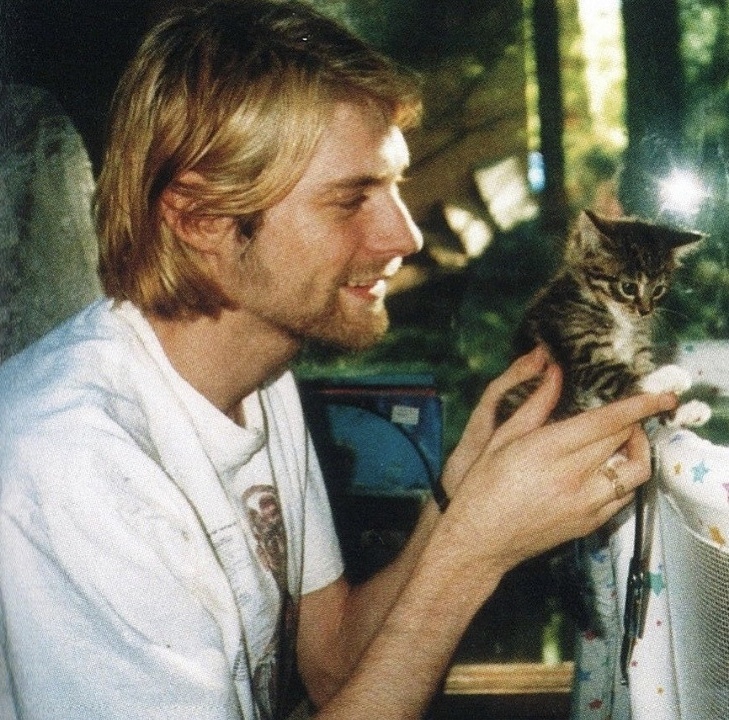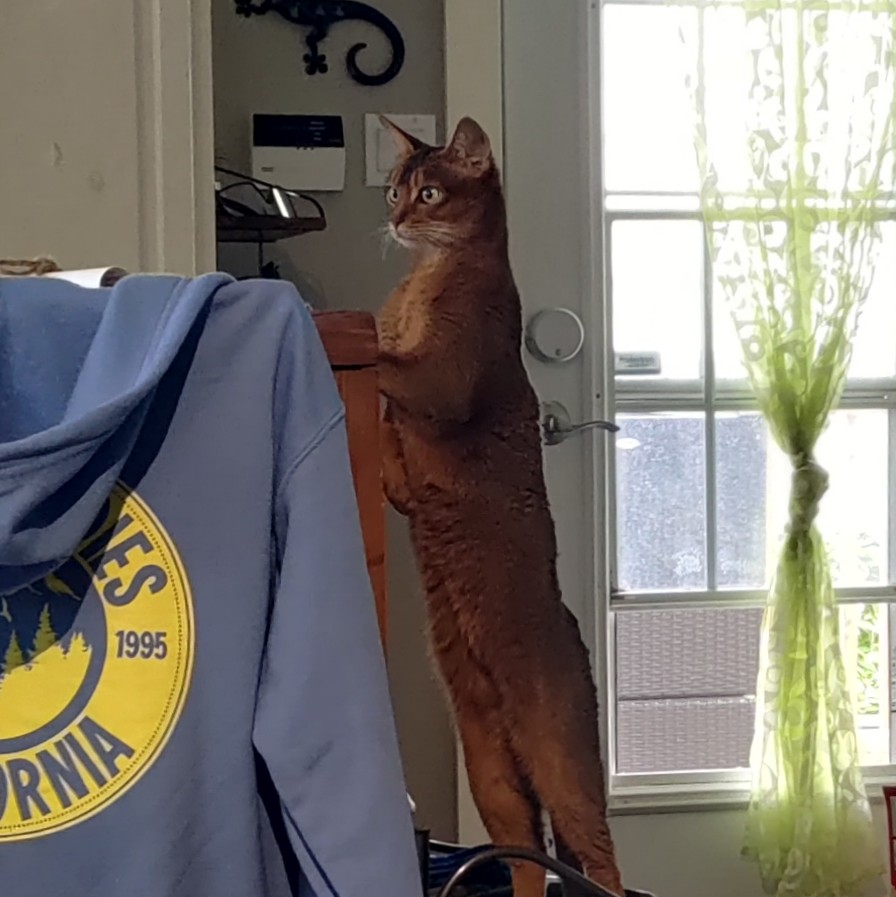My curiosity absolutely does not disappear when I’m medicated! I’d rather say that it gets refined and sharpened such that I can better filter out noisey ideas that irrelevant and focus on my curiosity and creativity such that I can actually execute on the ideas I have.
Alas, I have the ‘nothing at all gives me dopamine’ ADHD. I thought it was just depression for years, but turns out it was ADHD. I struggle to see any benefits that come from my condition.
ADHD can correlate with depression. You still need to treat the depression though. Untreated depression will indeed blind you to anything positive about anything.
Yup, it‘s probably that. In a societal vacuum, the curiosity would exist, but the daily struggle and resulting depression overshadows it.
(Source: Been through it, currently recovering.)
Duh.
You think a behavior that was handled in humanity for thousands of years would be fully disadvantageous or perhaps just we are letting our world be dominated by what a few think it should look like?
It may not fit into the current world but that is more a statement on it than us.It’s like my boss says
“Just shut up and do your job”
Right now I am into mushrooms but that doesn’t pay the bills
Yeah i wish it was easier to get in and out of jobs. I would open a really awesome popcorn shop i think but i cant risk the bills.
But thats the flaw of our current society that we cant explore how we can help make the world a little more full instead of utilitarian.
PFFT advantage of asking too many questions and pissing off all the normals? Yup, got it.
“And she often obsessed over random projects before abruptly abandoning them.”
Preach.
Yesh I really feel like it’s a double edged sword. Like you could excel at so many things if you could only stick to it.
You know the saying: Hypercuriosity hyperkilled the hypercat.
Turns out safety regulations are written in our blood
hyperthe*
I mean it’s a “water is wet” kind of “discovery” for anyone who has or understands ADHD, but it’s nice to see it spelled out in an accessible way for laymen. Many types of neurodivergence have advantages, it’s just that those advantages are not as impactful as the disadvantages because they the disadvantages break societal norms. Just like a person in a wheelchair breaks the societal norm of stairs. Unless accommodations are made, they disabled person is unable to participate in society and thus they are unable to use or sometimes even show their advantages.
It doesn’t help that we have a fundamentally broken society to begin with.
Society hyperoptimized on
productivityprofit such that taking time to enjoy a side quest is frowned upon…While that’s true, there are common objectives that benefit the whole: food, shelter, health, art, and of course rest and recreation. The ability to prioritize and stick to a plan is challenging, for everyone. Who wouldn’t rather be doing something fun?
There’s a balance there somewhere. I often ignore it at my own peril.
TBF, we’re the ones who’ve always known “water” isn’t “wet”, it does the wettening. 🤷🏼♂️
I mean, yeah, but it’s the idiom for that and is why I put it in quotes. Not all idioms make logical sense.
The fact remains.
FYI, many modern idioms are bullshit shadows of their original phrasing, (eg. “Blood is thicker…”, “Great minds…”, “Birds of a feather…”, etc.) and arguing that they’re fine as-is smacks more of anti-intellectualism (if not outright laziness) than anything meaningful. 🙇🏼♂️
But that’s how language works. Things mean what the majority of people say they mean. Otherwise, everyone would still be using the n word because it wouldn’t have a negative meaning. It’s about communication, not absolute logic.
Just because the horizon exists doesn’t mean every path toward it is equal in value. Logical fallacy aside, you seem to agree that improvement as a species is a worthy goal, and maybe even a personal obligation to promote such.
Language works a lot of ways. Don’t let laziness and cognitive ambivalence hold the reins of linguistic morphology.
Nope I don’t agree. Language has meaning to people, and has no obligation to past meanings or logic. If it did then we wouldn’t have been able to reclaim the use of the word gay which has changed meanings multiple times just in my lifetime.
Oh, please, say more. 😶
bad b8
You don’t “know” shit, you just made that up to feel smart. Water as a substance is fucking wet, and before you challenge me you should know that we both have the same disorder.
Oh, sweetie. Aw. You’re way ahead of me there. Much wow. Move along, please.
lmfao if you took this seriously I’m sorry for you but also gfy
You dance? That backpedal looks practiced.
But also, since you’ve been so pleasant and asked so nicely,
A single molecule of water is not wet but as soon as more than one molecule is present the water is then wet. If there are a substantial number of molecules, then you have the substances that we know as water and ice.
The molecules themselves also are not solid or liquid, that has to do with the behavior of the molecules in dimensional space. At the level of everyday language, we are talking about substances, and generally when we refer to water we are talking about it as a liquid substance.
Most liquid substances you could easily mix with water are themselves water-based and therefore would be totally dried up into a powder or perhaps a jelly without their water content. To add water is to make them wet, and then they exist as a wet incorporated substance. In fact, they could not dry up if they were not wet in the first place; to become dry is to transition away from the state of being wet.
You know what else dries up? Water.
I stand by what I said? Just letting you know that I did so in a playful manner. Go troll somewhere else pls thx.
I mean, downhill I guess 🤷
Yeah I have it, it’s let me learn a lot of new things but it falters when I really want to explore those things or God forbid, get better at them
I read the article, but I don’t understand how hypercuriosity is a benefit. It’s more annoying than anything, because I can’t do anything practical with it.
It‘s a benefit for society. Some people being weird and trying new ways to improve tasks are eventually successful. Think caveman constantly rolling down things a hill and inventing the wheel.
I think most people who have it figure this out pretty quickly. NT normies feel like they accept the world completely at face value by comparison and it can cause a lot of friction
I was regularly told to stop asking “too many” questions in class when I was a kid.
Funny thing is, this has helped me enormously in my career. Everyone else is simply trudging along on assumptions and I swoop in with a dozen edge cases that we simply aren’t handling.
Schooling beats a specific kind of “curiosity” into you, while beating out a much more general “what if this assumption isn’t the case.”
Monkey-see, monkey-do is a powerful survival skill. For neurotypical people, it’s easy to just reproduce learned behaviors, without the reasoning behind them. I find interesting parallels with generative AI. You see it a lot in creative pursuits especially. So many people totally miss subtext. I think you also see it a lot while driving.
And it’s largely an education problem. There’s no reason neurotypicals can’t think critically, but it’s much easier to teach them to just slot into a role without any real understanding (Religion is very good at this). I think that’s also the reason conventional education can be so difficult for people that aren’t neurotypical. It’s meant to teach you what to do, not why
I definitely find myself to be at an advantage compared to most neurotypical people I have worked with. In aggregate though, the ease they have moving with the flow can end up being more of an advantage in the long term, especially in largely neurotypical spaces. It can be very frustrating
Oh my god. I was too, and my parents always said it too, it gave me a weird complex growing up. Like…do you people not have questions or care? Wtf?
When I was in the army, my sergeant’s favorite phrase was " elucubra, don’t think", which looking back is kind of ironic, as I was in a scout unit, and we were expected to go behind enemy lines and think outside the box to find ways for the company to breach the lines.
Got slammed for asking why for context. Ended up in the O room for “being too smart”
If they wanted thinkers, they wouldn’t farm school-age athletic programs. 🤷🏼♂️
Funnily enough, I somehow stumbled my way to sergeant, also graduating primus of my class in the NCO school, by actively breaking the unwritten assumptions and “traditions” (habitually, not intentionally) and was consistently rated the most competent and, I think this is the more important aspect, liked / respected by both those below and those above me, out of my entire company. Only segment I consistently got somewhat worse ratings was peers, I.e other NCOs, especially on the respect part (they too did concede the competence despite all) which kind of makes sense, since I wouldn’t do all the yelling or excessive barrack rule hawking or whatever, which, all of it basically, always seemed counterproductive to me. But would make the others look bad when my squad wouldn’t have to suffer that nonsense daily… I made sure my squad would present cleanly and know their shit, just by being there with them, doing just that. It’s easier to just go along with someone else, when they go first, than listening to someone not doing said thing tell you to do the thing without them themselves doing it. But I digress.
Just my anecdote about the cliche of “don’t think” attitude in army. It works, perhaps that’s why it is a thing, but I would suggest that it might not be the only thing that works, and, maybe some other paradigms would work much better, if only given chance.
And the more immediate thing I wanted to convey: Not everyone in the army (depends on your country of course though) is the same, and there were, back then during my time, and almost certainly now too, different people doing different things. Especially when you go down to squad level and NCOs, there’s a lot of room for variety in ways to do things and handle stuff.
The twist? I was unmedicated the entire time, too. No diagnosis (did get one pretty much right after when I went to uni, before that I was 100% sure I didn’t have adhd or anything, I was just weird and lazy on important stuff, extremely non-lazy on useless stuff… the entire thing was an accident after I went through the fallout from a burnout with a psychiatrist and therapists, who unpromptedly marched my ass to adhd tests and ran months worth of interviews with family and teachers I had when I was child and all…), though everyone above joked about it all the time because I would stay up late into night just obsessing on some equipment inventory or whatever reports, often just voluntarily doing platoon level stuff too, when the second lieutenants would be too lazy to do them in the first place, or I didn’t like the way they omitted a lot of important stuff in the reports they’d almost always run by me (yeah my hyperfocus and excessive energy was very much abused and I did burn out pretty bad just before I left for reserves). With medication? I think I might have just been one of the other NCOs, telling the guys not to think, and treat them as people not capable of thinking. No way to know now, but, I left my active service with best grades and ratings of my company both from below and above (but still not peers…), so I would claim that perhaps we’d do well to give more chance for new ideas and neurountypical flavor on things.
But I should also add that I never went on tour or anything. Our country only has defense forces, so active service meant mainly education and training, both myself but mostly for those just doing the service without stripes. Not sure how this would’ve fared in an actual stressful situation and environment.
But I will say, I was extremely good in chaotic situations, which seems is a common thing with adhd peeps in general. It was very easy for me to take control of a chaotic or messy situation that, like always, went somehow to shit and required improvisation. Perhaps because I would just act, and have a lot of ideas about what to do next, pretty much at all times. I didn’t really stop to think, which of course could’ve lead to some better choices, but I found, same as those above apparently, it’s better to make a choice and act fast on your feet, than to make the best choice but having to stop and think.
But this became a weird tangent. Sorry about that. Point is, “don’t think” is not the only way these things work. Sometimes “think too much and constantly” is just as good, if not better, when coupled with the adhd parallelism of action and thought.
Edit: Perhaps worth it to add, I was very bad at shooting despite very hard training and will to excel. The usual grunt stuff, I really didn’t manage past average. But that might be why they forced me to NCO path despite my strong messaging about my strong desire not to do that. I’m pretty sure adhd plays a part in that. Individually I’m not a very good soldier. But at the helm of a squad, it takes a very different set of skills, which really shines, in my opinion, with the usual adhd traits.
I was always told “I don’t know, ask your grandfather” He was in education and had encyclopedic knowledge of so many things!
I’m offended by the attention deficit and the disorder part. I don’t have a deficit, I have an abundance of attention, it’s just not linear. I have parallel attention, not serial. In my close circle I’m the guy people often go for answers, because I often have them, albeit often somewhat superficial, because it’s near impossible to go deep in any subject, unless hyperfocus kicks in.
I feel seen lmao
In ways you’re not even aware of, but yes. 🖖🏼
I have more attention than most, but I just can’t put it all in the same basket! (Unless hyperfocus…)
So if you ever wonder who it was that figured out you can eat something weird way back in history, sounds like it was probably someone with ADHD lol
“Dampening such impulsive behavior so that the child can focus and succeed makes intuitive sense. But what if dampening the child’s impulsivity also dampens curiosity?”
Perfectly explains my struggle with learning physics in school and it quickly becoming a hobby of mine when i stopped being medicated when i no longer went to school.
“When you look at the way people with ADHD learn, and especially if they are hypercurious, they start reading something and they’re like, ‘Ooh what is that? I want to learn about this. What is that? Does it connect to that?’ It looks a lot more like a messy mind map rather than a straight [line],” Le Cunff says. “The problem is when there’s no space for exploration.”
I cannot express to you how much this captures my experience reading. It can sometimes take days for me to get past a page when I’m constantly stopping to look up other things a passage made me think of or write down ideas and questions.
I feel this too when I play video games. I like to open every box, go through every door, listen to all the recordings etc. When I play coop with my husband it drives him a bit nuts when he wants to focus on a specific quest and I’m exploring.
I am right there with you in games. I’ve been playing Enshrouded with my partner and some friends recently, and we’ve gotten into arguments on continuing the quest, versus exploring, versus building lol
It’s very interesting to me to see how other people can just walk past something without looking into it, or, even more foreign to me, remember it, and come back later. I, personally, have to completely explore an area outright the first time, because I know I will not be interested in going back through it in the future
Oh yes and on games I often pause them to look up some random question like which skill is the best to inherit or something. I do soo much research on games I play despite my best intentions to just be in the moment.
IME, the “story” is what happens between my deep-dives from the railing of the baked-in plot-ship. 🤣
I think this is why certain games very much overwhelm and overstimulate me. Luckily it’s a time sink that I don’t really need to have in my life anyways, beyond random occasions when I find something that pulls me in.
Love this! I can start a Wikipedia page on something to do with particle physics, and 300 pages of related topics later, I can finally recurse to the original page and… ah, got it! Cool!

These two share curiosity in common.











